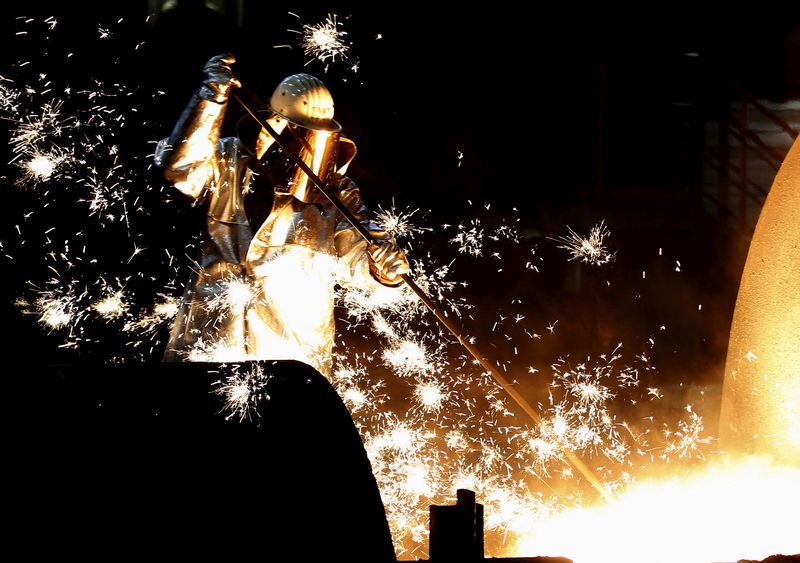By Michelle Martin
BERLIN (Reuters) - German industrial output fell more than expected in September, data showed on Thursday, pointing to ongoing weakness in the sector and indicating that Europe's largest economy most probably slipped into recession in the third quarter.
Industrial output dropped by 0.6% on the month, figures released by the Economy Ministry showed. A Reuters poll had pointed to a fall of 0.4%.
"It's not a nice number. The decline in industrial production in September makes a technical recession almost official now," said Thomas Gitzel, economist at VP Bank.
The economy shrank by 0.1% in the second quarter, and recent data have suggested manufacturing fared badly in the third, which could put Germany in recession - usually defined as two straight quarters of contraction.
Data from the Statistics Office showed industrial production decreased by 1.1% between July and September, marking the fifth consecutive quarter of contraction.
While construction was stable in the third quarter, weakness was otherwise broad-based, with production declines registered at factories making chemicals, metal products, electrical equipment, machinery and motor vehicles or parts, data from the Economy Ministry showed.
The ministry said the weak patch in German industry was not yet over but business sentiment and an uptick in orders had brightened the outlook for the fourth quarter.
Germany's export-reliant manufacturers have been suffering from a slowing world economy and business uncertainty linked to a trade war between the United States and China, and Britain's planned, if delayed, exit from the European Union.
The data came a day after figures showing industrial orders rose more than expected in September had provided some hope for the sector.
Any optimism about German industry's prospects was premature, ING economist Carsten Brzeski said, adding that structural factors such as low capacity utilisation meant the sector was unlikely to rebound much before the first quarter of 2020 even if Brexit uncertainty and trade conflicts calmed.
Thursday's data showed factories churned out fewer capital, intermediate and consumer goods in September.
Jens-Oliver Niklasch, economist at Landesbank Baden-Wuerttemberg, said significant declines in the production of intermediate and capital goods suggested the recession in the industrial sector would not be overcome anytime soon.
"The September number for industry makes us almost certain that gross domestic product declined slightly in the third quarter too," he said.
A survey on Monday showed that Germany's manufacturers remained stuck in recession in October as new orders fell for the 13th straight month and factories cut jobs at the fastest pace in almost 10 years.

However, German business sentiment held steady in October, and the economy should grow moderately in the final quarter, the Munich-based Ifo economic institute said late last month.